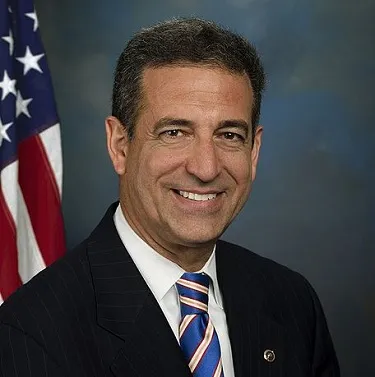Table of Contents
Feingold has participated in a myriad of campus events so far, spanning from Stanford in Government organized seminars to lectures based on his up-coming book *While America Sleeps: A Wake-Up Call for the Post-9/11 Era. *All quarter long, SIG will be providing a group of students with a 90-minute lecture series with the former Senator on subjects ranging from genocides in Africa, government responses after 9/11 to how language barriers are an increasing threat to our national security. His interests regarding how we can continue to protect our nation in an increasingly global world have stemmed from his involvement in the Foreign Relations Committee, and from his position as the Chairman of the African Affairs Subcommittee. Many of the Feingold events this quarter revolve around the same theme: motivating individuals to cultivate understanding of other countries and of the conflicts that threaten our national security.
During the seminar “A Responsibility to Act,” which drew on Senator Feingold’s experience as Chairman of the African Affairs Committee, he examined questions regarding the extent of the United States involvement in humanitarian crises around the world and the military or diplomatic solutions that can be used to alleviate these problems. However, the main message pulled away from this particular seminar was Feingold’s vehemence regarding the lack of understanding that our political system has with respect to these countries. In fact, his new book and several of his on-campus lectures precisely address these concerns.
“Ever since 9/11, we haven’t made the adjustment to being knowledgeable and concerned about the rest of the world…. My hope and dream is that in the next 10 years we cause ourselves to have a serious emphasis on the world,” Feingold explained passionately. The cultural isolationism we have created does not only affect our economy, but it presents a danger to our national security due to our inability to see threats or problems before they become too serious. The former Senator continued to advocate for a need to create more sophisticated connections with the people and governments that surround us.
Our national security is inextricably linked to the rest of the world in many implicit ways that we should be aware of. Feingold uses the example of Kenya, a country many individuals would normally overlook. However, Somalia recently invaded Kenya and is twenty miles away from Yemen, the ancestral home of Osama Bin Laden and a chapter of Al Qaeda. In fact, in 1998, Al Qaeda members bombed the American Embassy in Nairobi, Kenya. These Middle Eastern connections must be understood in order to further protect our nation from possible future attacks from the region. Feingold warned that if we do not want any more surprises from this part of the world, we must be aware of the events and on going dynamics between countries that we often ignore.
Moreover, our currently bipolar political system and aggressive campaigning tactics undermine our credibility abroad. “People in Europe were laughing when there was an add attacking Mitt Romney because he can speak French…it makes us look silly…and we should be worried about how we come off,” Feingold remarked. Current stigmas have loosened our credibility from an international perspective and Feingold highlighted this phenomenon; a movement he believes we can only reverse by adequately understanding the rest of the world and taking our national security’s fate in our own hands.
During the SIG seminars with Feingold as the lecturer, students asked questions pertaining to endeavors they can engage in to further this cause. Feingold responded that student actors have sometimes the loudest of voices. The former Senator even admitted that students have taught him certain things about the rest of the world that he had not known before.
“I understand that I am just at the beginning of trying to do what I’m telling other people to do…We need your generation to try and turn that around because I don’t think it’s safe for America otherwise,” Feingold concluded.





